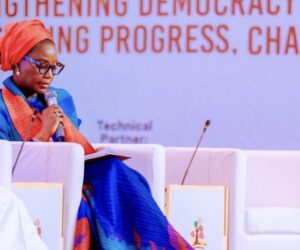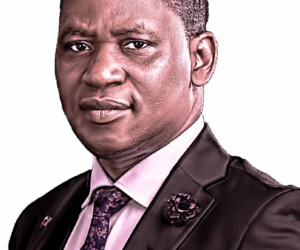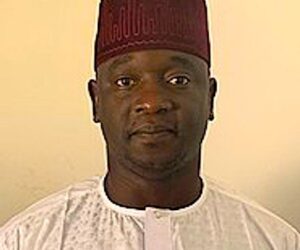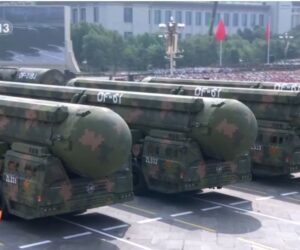Recently, a Katsina state lawmaker, Alhaji Abubakar Mohammed, has been in the news for the right reason, as far as I am concerned, for his bold and commendable decision to train and procure firearms for his people to defend themselves against criminal elements tormenting part(s) of his constituency. This is the best constituency project any lawmaker has ever undertaken since the initiative was introduced to our political space, though many believe it is a conduit pipe for our lawmakers to further enrich themselves.
After all, constituency projects can only benefit the living and not the dead. It is unlike a Zamfara federal lawmaker, Kabiru Maipalace, who chose to renovate 80 cemeteries across his constituency comprising Gusau and Tsafe Local Government Areas. I am not saying the final resting place for the dead should be totally neglected. But to make it a constituency project sounds strange in an environment where the living is finding it extremely difficult to stay alive as a result of hunger or pervasive security challenges or both. Anyway, Maipalace has since denied the report in its entirety.
Alhaji Mohammed, also known as Total, gave reasons why he took the desperate action to purchase firearms for his constituents to equip them in the face of constant raids by armed bandits in their communities. After all, it is said that a desperate ailment deserves a desperate cure. The situation in that corridor as it is the case in other parts of the northern states requires such an approach.
At the Bagari community located in the lawmaker’s constituency, some courageous locals succeeded in repelling bandits’ assault and forced them to flee into the bush. However, the attackers were able to ferry some captives numbering 200 away into captivity.
Reacting to their audacity to confront them, the bandits declared that any community that had the liver to stand up against them in future will pay billions of Naira for their temerity or face continuous attacks. Pissed off by the bandits’ ludicrous demands, the lawmaker decided to visit the area and parlayed with the volunteers who have taken it upon themselves to garrison the area without any potent weapons. In order to encourage them further, he decided to procure 50 guns for them to balance the terror acts they are exposed to.
In his words, “These firearms I distributed to the people are strictly for self-defence. Every society has its laws; I secured the weapons from the authorities and I engaged security forces to train the people.
He lamented that after the raid, bandits left behind a huge number of casualties. During the condolence visit, they begged him to get firearms with which to defend themselves because when the bandits invaded the community they could only respond with stones. But if they were equipped with firearms, they would be able to match the criminals fire for fire and rescue their people.
The lawmaker said that he knew no one in the area, but security agencies knew the people. They selected, screened and trained them before they were armed, assuring that lawful process would be followed to secure more firearms for them to defend their communities and not to turn the weapons against any innocent and law-abiding members of the community. With that development, the locals can now venture to their farms without looking over their shoulders or engaging the bandits with stones as though they were in the David-Goliath era.
Recall also that as recently as 2022, the immediate past Governor of Zamfara state, Alhaji Bello Matawalle, gave the nod for the residents of the state to own firearms after acquiring licences. In what was described as Operation Fire for Fire, Alhaji Matawalle who is now the Minister of State for Defence, said he was responding to the incessant killings of his subjects by insurgents, bandits and kidnappers without any let or hindrance.
In a statement by his former Commissioner for Information, Ibrahim Dosara, the move was in response to the increasing cases of kidnappings, killings and violent attacks within the state. Dosara said the “Government is ready to facilitate people, especially our farmers, to secure basic weapons for defending themselves. Government has already concluded an arrangement to distribute 500 forms to each of the 19 emirates in the state for those willing to obtain guns to defend themselves.”
Self-defence is in consonance with section 33(2) (a) of the 1999 Constitution, which gives the citizens the right to kill in defence of oneself or in defence of one’s family or property.
The development in Funtua is a direct response to the strident calls by Gen. TY Danjuma for Nigeria to acquire arms for self-defence in view of the intractable security challenges dogging the entire nation that appear to overwhelm the security forces in recent years.
It will be recalled that in 2019, late President Muhammadu Buhari cancelled the licences of all private weapons across the country. This decision put him at odds with many Nigerians who were at the receiving end of criminal activities nationwide. Under Nigerian law, the state government does not have the power to issue gun licences.
The Firearms Control Act No. 32 came into force in 1959. The Act provides that no person shall have in his possession or under his control, any firearm or ammunition except such person who has a licence from the President or the Inspector General of Police (IGP).
It states further that no licence or permit to carry firearms should be granted to the following people:
· Applicants under the age of seventeen;
· Persons who are of unsound mind;
· Persons not fit to have possession of the firearm in question on account of defective eyesight; and
· Persons of intemperate habits or anyone who has been convicted of an offence involving violence or the threat of violence during the previous five years.
Except for licensed firearm dealers, it is unlawful for anyone to buy or sell firearms or ammunition. The same goes for firearm manufacturing, only the IGP can grant a license to make and repair firearms in Nigeria. However, such persons must be duly documented and registered.
Anyone who has in their possession unlicensed firearms; who imports or exports firearms or ammunition other than through prescribed ports or who manufactures, assembles, or repairs firearms and ammunition unlawfully shall be liable to a minimum sentence of 10 years imprisonment.
Personal firearms are also prohibited including shotguns other than automatic and semi-automatic shotguns; shotguns provided with any kind of mechanical reloading device; sporting rifles, air guns, air rifles or air pistols, and humane killers of the captive bolt type. Dane guns, flint-lock guns, and cap guns are also included in the list.
It should be of immense interest to know how Total was able to get around the stringent provisions to arm his constituents. Nevertheless, the time is over-ripe to encourage eligible Nigerians to own firearms. This has become imperative since the process of establishing state police is moving like a vehicle without an accelerator. The last time the National Economic Council (NEC) met, the crucial issue was sidelined because of bureaucracy. The state police presence appears to be the last hope of the common man that is at the mercy of these societal vermin. My heart bled when I heard the news of the gruesome massacre of 50 worshippers inside a Katsina mosque. Imagine a few of them armed to the teeth with their own firearms. Would the assassins not think twice before planning such a pogrom?
Some security experts have argued that allowing citizens to arm themselves gives only the illusion of personal security. They argue that in the United States of America, the more guns that are available to the citizens the more gun deaths are recorded, suggesting that the same thing will not happen in Nigeria. They further argue that increasing the availability of arms in circulation, means that some of them are likely to fall into the hands of bandits and terrorists, further worsening the security situation.
That argument has been over-flogged. And that should happify the criminal elements because it would leave their targets, you and I, ever attackable.
It is public knowledge that Nigeria still accounts for 70% of illegal guns in West Africa according to a United Nations report on August 3, 2016. This can be assumed to be one of the major causes of insecurity in recent times.
The imperative of individuals possessing guns ahead of the formation of the long-awaited state police is that its existence does not prevent ownership of licensed arms because the security agents cannot follow you wherever you go but the criminal elements can.
Those who are still opposed to the establishment of a state police system are part of the problem or perhaps they feel secure than the rest of us who move around with our hearts in our mouths.
As for me, I would not settle for the commonplace AK 47 rifle that is older than I am. Just imagine your truly sauntering along the Abuja highway with a sub-machine gun strapped to my back. No criminal elements would wish to cross my path!








